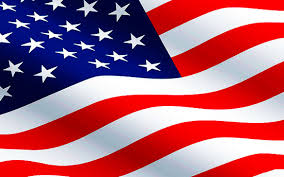Here’s How it Works and Why it Matters
Matthew D. Hutcheson mailed this letter “update” to family and friends in mid-October, 2020. We posted it here for the world to read. Hope you enjoy it as much as we did. It is the best explanation of the electoral college we have ever seen.
UPDATE
MATTHEW D. HUTCHESON
ENGLEWOOD SATELLITE CAMP
POLITICS/PRESIDENTIAL ELECTION
Dear Fam,
As you can imagine, the last week has been a non-stop flow of guys in and out of my room, each with questions about the election.
I will not recount every topic discussed, but I do think I should share the following conversation with a group of seven regarding the electoral college.
To better understand the conversation, I would first like to define some of the terminology used.
PRISON CAR: A prison “car” is the group of guys you “ride with.” There are general cars: Black, White, Paisa, Chicano, Asian, Islander, etc. Then, there are subcategories within each car: White from Texas, Black Muslim, Polynesian Tongan, Religions, Nature of Crime, etc.
SHOT CALLER: An elected or appointed representative from each car. The shot caller is the decision maker for the car and his decisions are final and binding. Shot callers negotiate with the other shot callers to resolve conflict (or whether or not to riot), present a united front to executive staff, obtain better healthcare, commissary, living conditions, etc. Shot callers say who can watch TV, where one may sit in the chow hall, whether one may walk the yard, and who gets “hit,” how and when. Getting “hit” can be a slap, beating, stabbing, or death.
WALKING THE YARD: Access to the general population, is able to leave cell, may participate in weight pile/recreation area, track, TV rooms, barbershop, email computers, etc.
KICK ROCKS: A term meaning, “Get out of here before something really bad happens to you.”
With those definitions established, I will proceed.
Seven guys ask me to meet them in the law library so they can debate and discuss the electoral college.
Four of the guys want a popular vote.
Three want to keep the electoral college.
“What do you want, Hutch?” they asked.
“Well,” I said, “The electoral college is part of the Constitutional apparatus.”
“And…so?” said one.
“It is a well thought out Constitutional provision, originally set forth under Article II, Section 1, Clause 3. Later, the electoral college process was refined, clarified, augmented and anchored by the Twelfth Amendment. The electoral college is not going away.”
“How can you be so sure? asked another.
“Because there are too many states that would lose electoral influence by voting to ratify such a Constitutional amendment.”
“Influence? I thought all that mattered was human votes.”
“Don’t forget…we are United States, but individual states nonetheless. Each state has its own laws, interests, values, etc. Each state is sovereign. Elections are state elections. There is no such thing as a “federal election.”
“We know. You have already driven that home over and over again. What we want to understand is your comment about influence.”
“No problem, I understand. In order to understand the electoral college system,” I began, “you have to put yourself in the shoes of the less populated original states.”
“Which states were those?”
“Georgia, Rhode Island, Vermont, and Delaware, for example.”
“Ok, so what? What about them?”
“Well, together the citizens of those four states made up 8% of the total population of the United States in 1787.”
All listening intently…
On the other hand, the citizens of the top four most populated states (Virginia, Pennsylvania, North Carolina, and Massachusetts) made up 55% of the total population.”
Still listening intently…
“If a pure popular vote were to control everything, those top four states would have had 100% of the power.”
The inmates begin to nod with new understanding.
“In other words, a minority of states would control the majority of states.”
“Yeah, but those states had the population numbers,” argued one of the inmates.
“Alright, let’s explore that. Why would the bottom four want to be part of the United States at all if their votes would never count?”
“Are you saying that since the top four had 55% of the population, Delaware’s population had no influence? The top four could vote for whatever they wanted and ignore the bottom nine?”
“Precisely.”
Another inmate chimed in, “Knowing how politicians think, those campaigning for office would have no reason to visit the bottom nine because their votes did not matter. Under a popular vote system, all a candidate needs is a majority 51%, and the top four had it.”
“Excellent observation! Well said.”
Now the conversation was getting really interesting. These guys were rapt in attention.
I continued, “Tell me what you think Benjamin Franklin meant when he said, [true] ‘Democracy is [like] two wolves and a lamb voting on what to have for lunch.'”
Laughter…
“What do you think Franklin meant?” I asked.
“The top four states are the wolves. The bottom nine are the lambs. The lambs are at the mercy of the wolves,” one of the inmates explained.
“Outstanding. So, put yourselves in those smaller states’ shoes. Say your car is a small car, and the bigger cars won’t let you walk the yard because you have no influence. What do you do?”
“We get our shot caller involved,” replied another.
“Good. That’s what the electoral college did. It gave each state at least three shot callers. Two senators and at least one representative.”
Now the inmates were really starting to understand
I continued, “Under a popular vote scenario, Delaware only had 1.8% of the population, which under a popular vote structure, meant it had zero influence. However, the electoral college increased its influence from 1.8 to 2.5, and adjusted all other smaller states’ influence upward, too.”
“How is the 2.5 computed?”
“Delaware had 3 of the 121 electoral votes that existed at the time, which is 2.5%.”
“Interesting!” the inmates exclaimed in a moment of excitement.
“What happened to the top four?” one inmate asked.
“The influence of the top four was reduced to 52%, which placed the top four’s influence into a margin of vulnerability to persuasion. In 1787 and 1792, New Jersey and Kentucky were admitted as states, receiving 7 and 4 electoral votes, respectively. That further adjusted the influence of the top four down to 48%. But for the electoral college, the top four still would have maintained an popular vote majority.”
“So back to our shot callers. The big dogs tell us to kick rocks when we want to walk the yard. There is nothing we can do about it until the shot callers of the smaller cars band together and negotiate on our behalf. Only then does it become fair for us. Only then do we have a say. Is that correct?”
“Bingo! You’ve got it! Do you guys still want a popular vote?”
“Nooooo!” they all said in unison.
“A popular vote is only fair if the populations of each state (or each prison car) are the same. Then, the influence is balanced. But as long as some cars wield an unfair share of the influence, shot callers, or electors, are needed.”
The conversation ended with seven more “satisfied customers,” each educated in the finer points of what makes America unique and great. Never, ever take the magnificent genius of the American Constitution for granted.
And, nothing helps inmates understand national politics like prison politics. There are reasons; necessary reasons, for the way things are.
Life in the Extreme,
Matt
###
NOTES
The electoral college will never be abolished for these reasons. 75% of the states would have to ratify the amendment. States would no more vote to dilute their influence provided by the electoral college than a prison car would give up its influence provided by its shot callers.
In 1792 there were approximately 2.6 million U.S citizens. Virginia had 550,000 of them. Delaware had 46,000.
In 1792, George Washington won 100% of the popular vote and 98% of the electoral college votes.
In 1792, there were 40 U.S. citizens per square mile.
Quote from Benjamin Franklin: https://mises.org/library/ben-franklin-liberty

